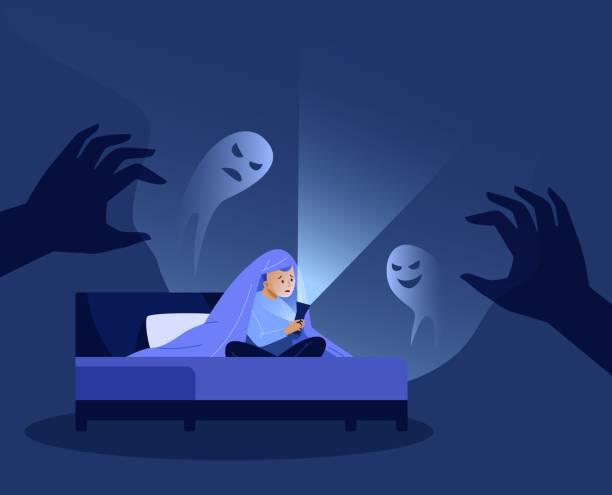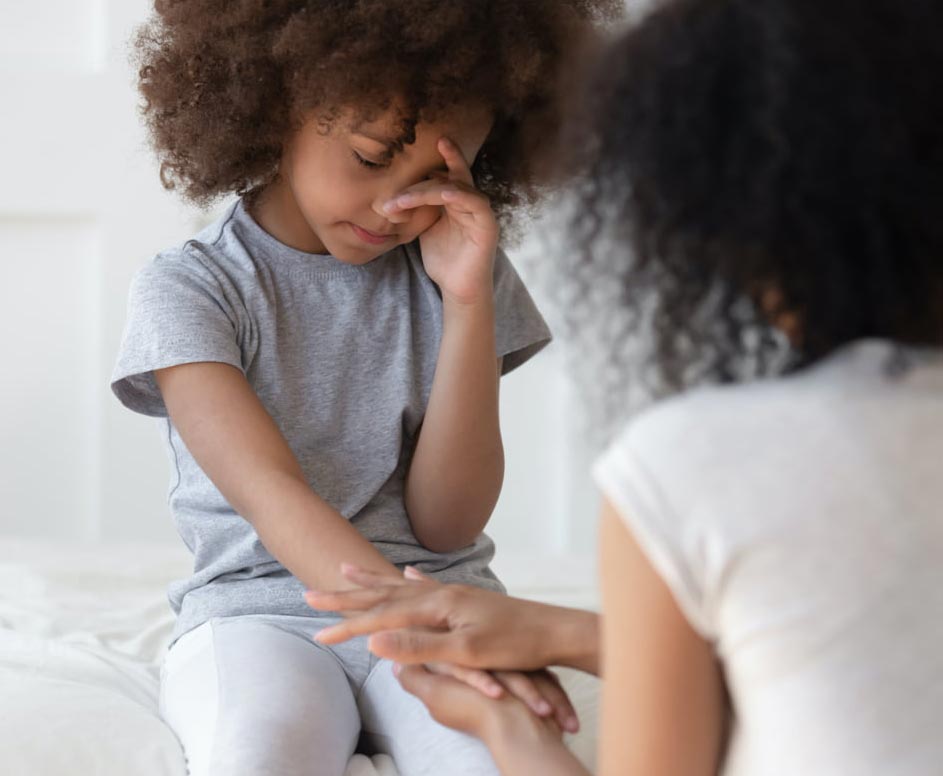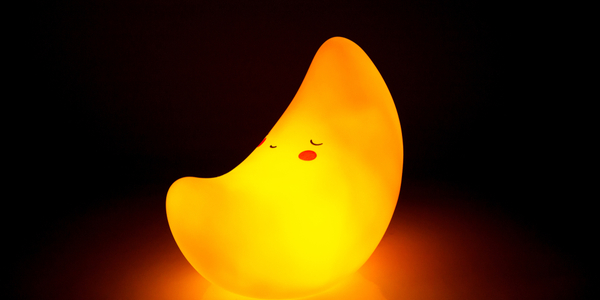Last Updated on October 31, 2025 by Mandy Gurney
My child’s afraid of the dark
It is normal for children to have nighttime fears and for the majority of them to surface at bedtime when it’s dark, at a time we all naturally feel more vulnerable. They are part of the normal development of a child’s imagination and usually start when children begin to understand the wider world and the fears that might bring.
Being afraid of the dark is common among children; in fact, research shows as many as 73% of children aged 3 to 12 years old struggle with nighttime fears. Studies also showed the prevalence of fears are related to age group; with fears being common in 4- to 6-year-olds, but becoming even more frequent in 7- to 9-year-olds and then remaining relatively stable in 10- to 12-year-olds.
The type of fear alters with age too. For younger children, they tend to surface when their imagination kicks -in and they struggle to differentiate between fantasy and reality. So, to them the monsters and witches they see in books and on screens are real and could easily appear in their darkened bedrooms at night when they’re alone.
For school-aged children fears tend to be related to more real-life events such as worrying about intruders coming into their home, hearing of local burglaries or starting school and separating from their parents.
The good news is children do eventually grow out of them but in the meantime, it can make them reluctant to go to bed and be a cause of night waking as well.

How to help your child who’s afraid of the dark:
Discuss worries and fears during the day
It’s important to take your child’s fears seriously as they are real to them and, depending on how old your child is, set time aside to discuss them. It’s best not to use bedtime to do this as this could trigger monster thoughts just as they are trying to go to sleep; instead have some quiet 1 to 1 chatting time with you earlier in the day and at bedtime consider using a relaxation and breathing technique to help relax them at bedtime and help them fall asleep.
Offer reassurance

It is important to reassure your child if they are scared. Their feelings are real and it’s important to recognise them and that they are scared. Reassure them that everything is ok, their bedroom is safe and you are there to protect them. You may need to do this at bedtime and again in the night if they wake.
Building confidence
Help to build your child’s confidence and take the fear out of the dark encourage them to play games at home such as hide and seek and treasure hunts. Start with the games close to you and with time expand the hiding zone so they are happy to hide further away, with you remaining in another room. As they become even more confident encourage them to hide or look for treasure in dim light and then graduate to hiding or seeking treasure in the dark with torches. As your child is having fun they soon forget to be scared and start to build up their confidence in the dark
Night lights

No matter what your child is afraid of, a night light can help. Set up a dim amber or orange glow light in your child’s bedroom, this will not stop them from sleeping but will help the room feel less scary. Have it on at bedtime and leave it on all night. They may also be reassured by leaving the bedroom door open and the landing light on so that they don’t feel isolated from the rest of the family.
Go into your child’s bedroom when it’s dark and with a child’s eye look around the bedroom to see if there is anything in the room that could look scary at night. A shadow or a favourite cuddly toy in the day can turn into a scary monster in the dark.
A friendly bedtime toy
Having a security object in bed overnight such as a special cuddly toy can help your child feel more relaxed and happier at bedtime and throughout the night.
Scary TV and books

Vet all the books and TV programmes your child could be watching. Many traditional bedtime stories feature wolves, witches and bears!
I don’t want you to leave!
If your child gets anxious about you leaving at bedtime, offer a boring excuse as to why you need to briefly leave, e.g., explain that you are off to “have a wee” or “turn the tap off in the bathroom” etc, but that you’ll be back in a minute. Return after only a minute, and say “well done you were very brave, I’ll stay now until you’re asleep”. The following night repeat and briefly leave again, but this time leave for 2 minutes.
Keep repeating this process slowly extending the time you are out of the bedroom for until your child can happily fall asleep without you in their bedroom or is happy for you to leave.
Offer rewards
If your child has done well give them lots of positive feedback; “you’ve done so well, you were very brave, I’m very proud of you”……. You can also consider setting up a reward system such as pasta in a jar or stickers to reinforce their behavior.
0 Comments





